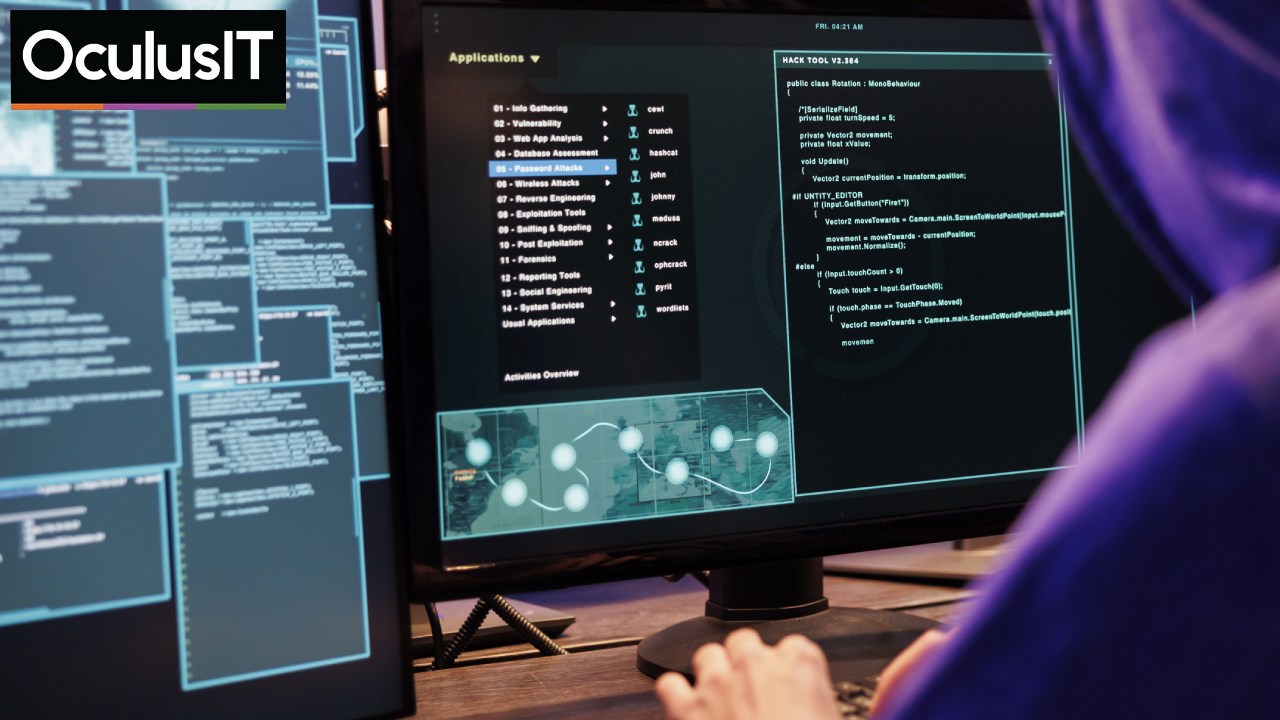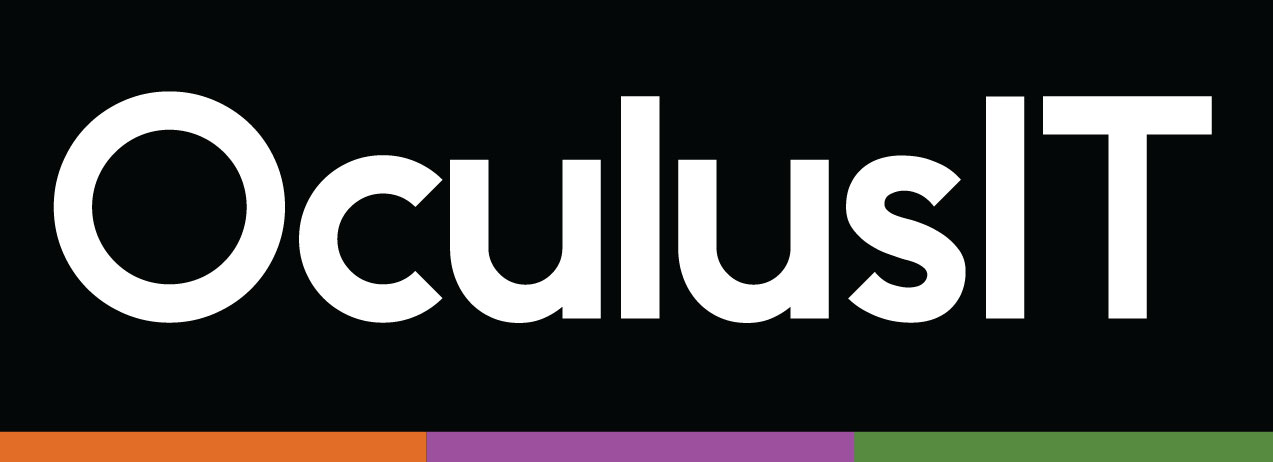
The Rising Ransomware Threat: Is Your Institution Safe?
November 18th, 2024
As ransomware attacks surge, the threat landscape is evolving, particularly impacting higher education institutions. According to a recent SecureWorks report, the number of active ransomware groups has risen by 30% over the past year, highlighting the urgent need for better cybersecurity measures.
This blog will explore these alarming trends and how OculusIT can provide essential support through managed security services.
Understanding the Ransomware Landscape
The 2024 State of Threat Report from SecureWorks indicates that the ransomware ecosystem is diversifying, especially after the disruption of the notorious LockBit group.
While LockBit was responsible for a significant portion of ransomware attacks, its recent decline has opened the door for 31 new groups to emerge
This shift underscores a critical point: cybercriminals adapt quickly to changes in their environment, making it imperative for organizations, especially in higher education, to remain vigilant.
Key Findings from SecureWorks
Here are the key findings from the threat report:
- Unpatched Vulnerabilities: Nearly 50% of ransomware attacks exploit unpatched vulnerabilities, emphasizing the importance of regular software updates and proactive cybersecurity measures.
- Emerging Threats: The PLAY group has emerged as a leading threat actor, doubling its victim count year-on-year. Meanwhile, LockBit’s share of attacks has decreased by 8%, indicating a shift in the balance of power within the ransomware landscape
“Cybercriminal ecosystems are akin to living organisms. They adapt and mutate in the face of disruption,” stated Don Smith, Vice President at Secureworks. This adaptability poses a significant risk to organizations that may not be prepared for such rapid changes.
The Impact on Higher Education Institutions
Higher education institutions are particularly vulnerable to ransomware attacks due to their vast networks and sensitive data. These organizations often struggle with outdated systems and limited resources, making them attractive targets for cybercriminals. The consequences of a successful attack can be devastating, leading to:
Data Breaches
Ransomware attacks often expose sensitive student and faculty information, including personal identification details, financial records, and academic data. These breaches compromise individual privacy and can lead to identity theft and legal issues for the institution.
The erosion of trust from students and parents can also negatively impact enrollment and tarnish the institution’s reputation.
Operational Disruption
A successful ransomware attack can severely disrupt an institution’s operations by making critical systems inaccessible. This downtime affects administrative functions and academic activities, hindering coursework, research projects, and access to student records.
The resulting chaos can significantly impede the smooth functioning of the institution, impacting both faculty and students.
Financial Losses
The financial consequences of ransomware attacks are substantial. Institutions may face hefty ransom demands that strain their often-limited budgets.
Beyond paying the ransom, additional costs arise from investigating the breach, restoring systems, and enhancing cybersecurity measures. Even after a ransom is paid, institutions may incur significant expenses in recovery efforts, especially if backups do not fully restore lost data.
The Essential Role of Managed Security Services
In this rapidly evolving threat landscape, Managed Security Services (MSS) are vital in protecting higher education institutions from ransomware vulnerabilities. As a leading provider of MSS, OculusIT offers tailored solutions that significantly enhance security posture through:
24/7 Monitoring and Threat Detection
Continuous surveillance allows for real-time detection of suspicious activity, enabling swift responses to potential threats before they escalate into significant breaches.
Vulnerability Management
Regular assessments identify weaknesses within an institution’s IT infrastructure, allowing for timely patching and remediation—critical given that nearly 50% of ransomware attacks exploit unpatched vulnerabilities.
Incident Response Planning
OculusIT helps develop comprehensive incident response plans that minimize damage during cyberattacks. With a well-prepared strategy in place, institutions can recover more quickly and efficiently.
Staff Training and Awareness
Educating faculty, staff, and students about cybersecurity best practices reduces the risk of successful attacks stemming from human error—a leading cause of data breaches.
Compliance Support
OculusIT assists institutions in navigating complex data security regulations, ensuring compliance while protecting sensitive information.
Access to Advanced Technologies
Partnering with OculusIT grants institutions access to cutting-edge cybersecurity tools that enhance threat detection capabilities without requiring significant capital investment.
Cost-Effectiveness
Outsourcing cybersecurity can be more cost-effective than building an in-house team, allowing institutions to allocate resources more efficiently while maintaining high-security standards.
By leveraging these services, higher education institutions can significantly enhance their defenses against evolving ransomware threats while focusing on their core mission of education and research.
Conclusion
The rise in ransomware threats poses significant challenges for higher education institutions. With a 30% increase in active groups and evolving tactics, it’s crucial for these organizations to adopt stronger cybersecurity measures.
OculusIT is committed to providing managed security services that empower educational institutions to safeguard their data and operations effectively. As we navigate this complex landscape together, remember that staying informed and proactive is key. By leveraging our expertise at OculusIT, higher education institutions can fortify their defenses against the ever-evolving threat of ransomware.
Recent Articles

Cybersecurity Awareness Month: Fortifying Your Defenses in Higher Education
October 07th, 2024

Securing Academia: The Role and Benefits of the CISO in Higher Education
September 30th, 2024

Transforming Higher Education Through Managed Infrastructure Services
September 23rd, 2024




